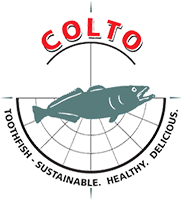In a new initiative the Government of South Georgia and South Sandwich Islands (GSGSSI) has published their first Annual Report. The report, which is designed to keep people informed about Government activities on and off the island, was published on this website on September 2nd and has been distributed to stakeholders, according to the latest South Georgia Newsletter edition.
The 13-page document covers the 2012/13 period and is introduced by Commissioner Nigel Haywood who writes that, “The 2012/13 season has been a busy and eventful one for the GSGSSI… All told, this has probably been the busiest year in South Georgia since the end of the whaling era.”
The report reviews the key Government activities in the Territory, notably fisheries and tourism management and environmental and cultural heritage projects. The fisheries for toothfish in the SGSSI Maritime Zone account for over 70% of GSGSSI revenue. However the high value of toothfish also means that it is essential they have a dedicated patrol vessel, the costs of which use 80% of the toothfish revenue. Management of the toothfish fishery continues to improve, for instance with the introduction of marked hooks, prohibition of net bags and establishment of Benthic Closed Areas. With the current MSC certification of the fishery due to expire in 2014, the assessment process for recertification will start soon. Over 50,000 tonnes of krill was caught in the krill fishery in both 2011 and 2012. The icefish fishery remains highly variable, with exceptionally big catches in early 2013. The icefish fishery was recently MSC certified in an industry led initiative and GSGSSI will work with the industry to maintain the certification.
A Marine Protected Area (MPA) was established in the Maritime Zone in 2012 and a revised ‘Marine Protected Area Order’ was made in June 2013. The report states that the Establishment of the MPAs clearly demonstrates that even in an environment as rich and diverse as South Georgia and the South Sandwich Islands, it is possible to have sustainable fisheries with minimum impact on the marine environment. GSGSSI will monitor activities throughout the MPA and will undertake a formal review every 5 years and, where appropriate, will address issues between formal reviews.
GSGSSI has benefited from funds jointly contributed by the Norwegian and British governments to mark the centenary of Amundsen and Scott’s journeys to the South Pole. GSGSSI has used the money to undertake heritage projects including: laser surveys of the whaling stations; partial restoration of the Nybrakke at Grytviken; and stabilisation of the old Manager’s Villa at Stromness. The impressive results from the laser survey work will be built on with further survey work at Leith whaling station in 2013. Work is also planned to stabilise the historic original Manager’s Villa at Stromness in the year ahead. Work to renovate Discovery House at KEP will be completed in the next few months, and the building will be officially opened in December, with the first visiting scientists due to use the new facility in February 2014.
The report highlights the recent GSGSSI environmental initiatives including the reindeer eradication work, monitoring of non-target mortality following the South Georgia Heritage Trust’s work baiting to eradicate rats and non-native plant management.
An overview of last season’s tourism and expedition activity is given, and the report states that following an inquest into the death of a cruise ship passenger whilst on a ‘Shackleton Walk.’ GSGSSI will “implement new procedures and documentation for Visitor Permit Holders” and will undertake a review of all guided walks and of the provision of medical support of cruise ships that visit South Georgia.
An overview of Government finance is given towards the end of the Annual Report. It states that in recent years GSGSSI resources were “severely stretched” due to reductions in fishery incomes, reduced tourism and increased fuel costs. A deficit of £674,000 in 2010 was, however, reduced to £125,000 in 2011 and preliminary figures for 2012 suggest a deficit of £79,000. Savings have been made by reducing travel costs, finding cheaper fuel suppliers, and allowing the sub-chartering of the fishery patrol vessel Pharos SG for short periods of work in Falkland Islands waters. The Government expects to show a small surplus in 2013 and in the long-term aims to maintain at least one year’s operational costs in reserve.
The first GSGSSI Annual Report ends with an overview of the roles of the nine GSGSSI personnel. GSGSSI would welcome feedback on the content and structure of the new report.
